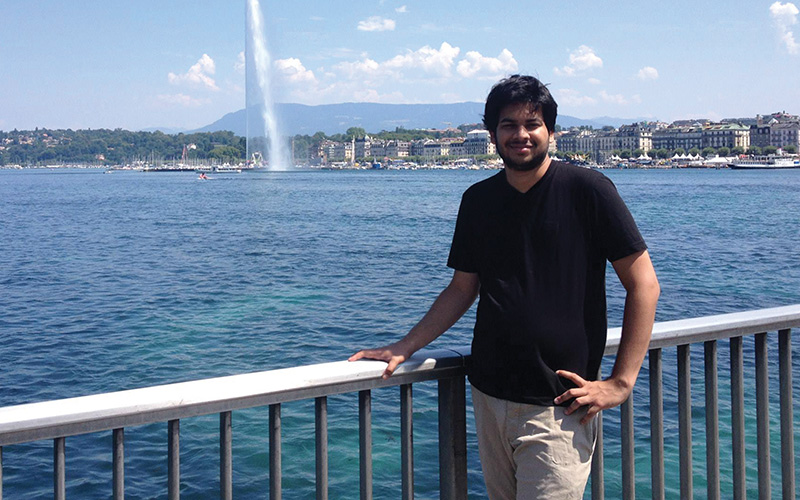
A start-up founded by a Gates Cambridge Scholar has scooped a top award from Facebook.
The award will allow us to scale our offerings more rapidly internationally, accelerating what is already a profitable and socially impactful business.
Riaz Moola
A UK and South African-based start-up founded by a Gates Cambridge Scholar has won Facebook's top award for innovation in education in Africa.
Hyperion Development, a social enterprise founded and directed by Riaz Moola while he was an undergraduate and developed during his master's at the University of Cambridge, has taken the $230,000 prize for its pioneering work in the field of computer science education which aims to both boost the South African economy and also act as a social enterprise model for exporting skills from Africa.
Riaz [2014] founded the social enterprise after being confronted at university by the huge differences in educational opportunity in his country, particularly in his own subject, Computer Science. Inspired by recent MOOC platforms such as Coursera, he created an online course platform adapted to Africa which paired tutors – typically Computer Science graduates – with students trying to learn programming through a low-bandwidth, text-based resource. The aim was to lead a national initiative to revolutionise the fields of Computer Science and software development in South Africa. The platform has grown to be the largest of its kind in Southern Africa and Hyperion Development is now going international.
To do so, it has developed a novel business model: it offers part-time, online courses to students in the UK through its UK site which went live this week. These students are then paired with expert coding mentors sourced from the top 1% of raw talent in Africa. That means that when people learn online with Hyperion, they get a dedicated, one-on-one mentor supporting them through the course on a daily basis – not just a computer marking their work or pre-recorded videos.
But the company takes it a step further – ‘to solve the world's largest educational problem’, is how Hyperion phrases it: for every course the company sells abroad, it delivers a free course to a low-income or unemployed youth in South Africa, creating employment and educational opportunities in African countries where youth unemployment is as high as 54%.
The company has already grown into the largest provider of software development education in the African market, with over 10,000 registered students from 14 countries. In then selects the top 1% of students to become online trainers for UK-based students.
Its model was recognised by Facebook's Internet.org Innovation Challenge in Africa Awards which aim to identify “leading examples of … online services that provide real value in the categories of education and economic empowerment”. Hyperion won the top prize in the category of education. Facebook’s Founder, Mark Zuckerberg, congratulated the winners in a recent Facebook post.
Hyperion’s model has also been backed by Google – making it one of the few African organisations backed by both tech giants.
Riaz said: “The award will allow us to scale our offerings more rapidly internationally, accelerating what is already a profitable and socially impactful business. We’re excited to work with Facebook and Internet.org to make software development education and careers open to all.”
Hyperion, which is headquartered in the UK in Cambridge as an incubated start-up at Cambridge's Judge Business School, has just confirmed another $40,000 in matched funding from Google and the South African Department of Science & Technology, bringing their 2016 grant funding total so far to US $270,000.
The Hyperion team work from offices in Durban and Cambridge. Riaz says its strong international links – team members include several Cambridge, Oxford and Edinburgh graduates – mean it can ensure software development in South Africa matches the highest international standards.












